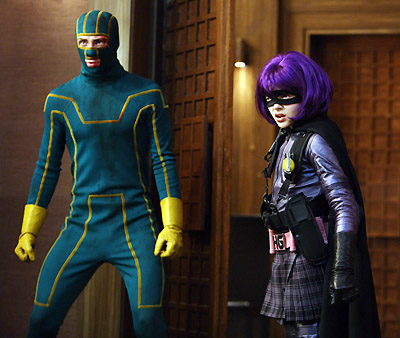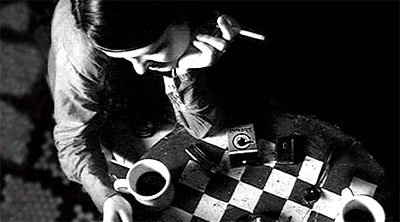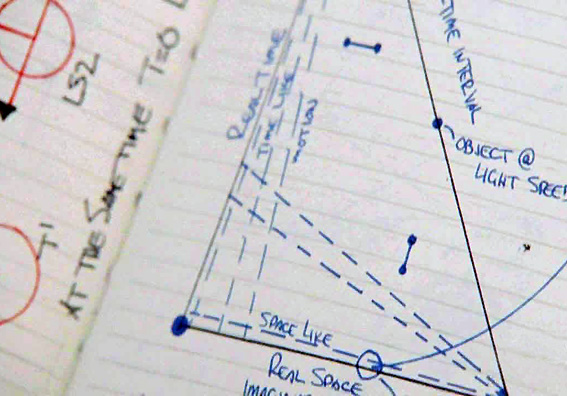Scott Pilgrim vs my brain

I don’t know where to start with this movie. It was intolerably irritating, and also one of the most enjoyable films I’ve seen this year. Often at the same time. It has a surly blue-haired girl wielding a giant pixellated sledgehammer, which alone should quality for a special award.
It often feels like Wonderfalls, a brilliant show doomed to fail as it was the best show of the mid-nineties, with the misfortune of airing in 2004. Scott Pilgrim references 8-bit video games and Seinfield (a trope namer for a very relevent concept) in the lives of early-twentysomethings…ie, people who were in diapers when Jerry Seinfeld was anything but a Bee Movie shill and never unironically played a non-3D Mario brother. This film, like Wonderfalls (and, now that I think of it, most of the references in Juno), is written from a Gen-X perspective and awkwardly grafted onto Gen-Y characters.
That’s probably why I enjoyed it so much, and why it doesn’t really hang together.
Kick-Ass is a Millennial movie in a way this isn’t. It hearkens back to the hallowed 80s trope (like goddamn everything in the last seven years) embodied by Anthony Michael Hall then and Michael Cera (…usually) now, in which a bitter, unsocialised loser boy would discover the magical solution of “confidence” that would let his inner awesomeness out, snagging the personality-free Hot Chick, thus instantly attaining maturity forever.
(Go right to hell, Nathanial Brandon. Ayn’s waiting with a carton of unfiltered Camels.)
Scott has already passed through this stage, full of unearned self-confidence and even a bit of a Casanova, why not. He’s also a complete tosser, despised by his friends and exes (everyone except his ultra-fetish fuel underage girlfriend, who is temporarily blinded by inexperience), and needs to properly grow up. The entire point of the film is that both he and his potential love are emotional idiots utterly lacking empathy. Since puberty, they’ve run through significant others like kleenex, promising relationships while actually using them as disposable props for whatever self-image suited them at the moment. Ramona’s a little ahead of the game; she’s been on the receiving end of that treatment and taken it as a mirror, making a vow to change with no clue how to go about that. Scott‘s still a dick, using the very cool Knives Chau only as proof that he’s over his last break-up and cheating on her without a thought for her existence, let along feelings.
Their bad karma catches up with them, metaphorically, as they both do battle with their own and each others’ wounded exes; the battles are wonderfully over-the-top for representing two people just coming to terms with their crush having had a life before them, and that they may be only another interchangeable future ex. Spoiler alert: by the end, they manage to grow up, realising that neither love nor self-esteem are magic unbeatable weapons, and that the best you can do is be honest with themselves and others…and try not to be such a dick. Great stuff.
And yet, the lead characters are both such horrible people! I wanted them to fail! Fail horribly, while everyone else got ponies! Especially Wallace, who took as much joy in Scott’s failures as me!
Also very 90s: the utter lack of parents, not only as characters but as any sort of presence. Video games have given these people more moral guidance than their self-obsessed boomer parents (if I learned anything at all from Reality Bites). The hangover-80s apartment furnishings and club design, setting off the retro-slacker milieu (or possibly Canada today, in the words of Tom Servo). The social circle is one of inertia, relics of high school and blood relationships and held together by schadenfreude, one meant to be left behind like chrysalis (all of whom seem to be encouraging Scott to vamoose for exactly that reason), rather than maintained forever by a complex web of social networking.
The only part that was truly irritating (in a not kinda-on-purpose way, like Scott and Ramona’s repellent immaturity) was the forced happy ending. They’ve both realised they need to get out of their niche and grow up in order to make new, less sociopathic relationship mistakes, but they bring each other along. Their relationship has been successfully argued as an extension of their mutual issues – they barely know each other, and have used each other as identity props. Scott wants to be cool, and he thinks Ramona’s cool. Ramona wants to be nice, and she thinks Scott’s nice. Together, they can only backslide into vapidity trying to keep their happy ending.
It doesn’t even fit the genre. Sure, Mario rescued the Princess, but he doesn’t marry her. At best, she non-metaphorically bakes him a cake.








